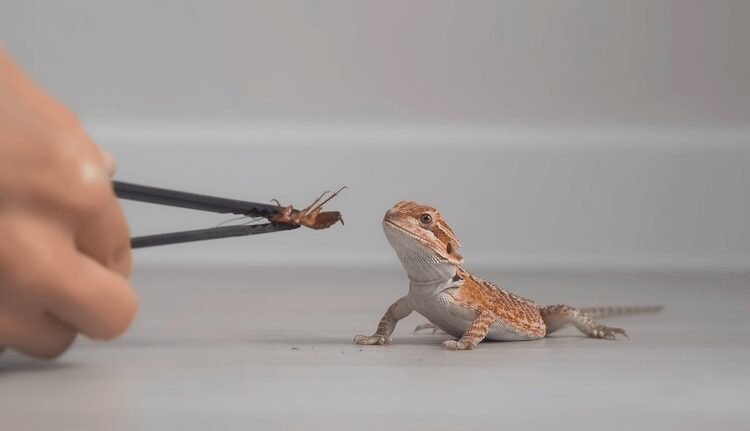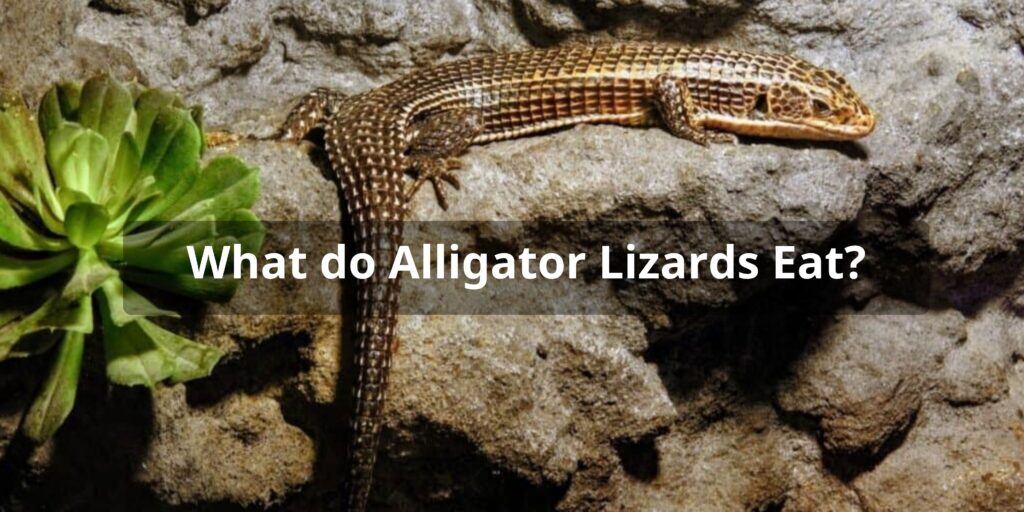Juvenile bearded dragons require a carefully planned diet to ensure their optimal growth and overall health. Providing the right balance of nutrients is crucial during this stage of their development. This article will delve into the basics of a juvenile bearded dragon’s diet, discussing essential foods, feeding guidelines, and hydration needs. By understanding these key aspects, you can provide your pet with the best possible care.
Juvenile Bearded Dragons Diet Basics
- Insect to plant food ratio:
- Juvenile bearded dragons should initially have a diet consisting primarily of insects, gradually transitioning to more plant-based foods as they grow. A good rule of thumb is to start with an 80% insect and 20% plant ratio and adjust it as they mature.
- Feeding frequency by age:
- Up to 3 months old: Feed 2-3 times a day
- 3 to 6 months old: Feed 2 times a day
- Over 6 months old: Feed once a day
Essential Foods for Juvenile Bearded Dragons Diet

Preferred Live Food Options
- Crickets: A staple in a juvenile bearded dragon’s diet due to their high protein content.
- Dubia Roaches: Another excellent source of protein and easier to digest than crickets.
- Mealworms: Provide variety but should be given in moderation due to their high-fat content.
- Silkworms: Rich in nutrients and a great occasional treat for your pet.
- Superworms: Can be offered occasionally, but should not be a primary food source due to their tough exoskeleton.
Safe Vegetables for Regular Intake
- Collard Greens: High in calcium, fiber, and vitamins A and C.
- Mustard Greens: Nutritious greens that are readily accepted by juvenile bearded dragons.
- Kale: A good source of calcium, but should be fed in moderation due to its high oxalate content.
- Butternut Squash: Provides vitamins and minerals while also adding variety to their diet.
- Bell Peppers: Rich in vitamin C and a great way to add color to their meals.
Recommended Fruits for Juvenile Bearded Dragons Diet
- Blueberries: Packed with antioxidants and easy for bearded dragons to eat.
- Papaya: Contains digestive enzymes and provides a sweet treat occasionally.
- Mango: Rich in vitamins and minerals, but should be given sparingly due to its sugar content.
- Watermelon: A hydrating fruit that can be offered in small, seedless pieces.
Essential Vitamins & Minerals
Certain vitamins and minerals play a vital role in a juvenile bearded dragon’s diet. These include:
- Calcium: Crucial for bone development and preventing metabolic bone disease (MBD). Dusting insects with calcium powder is necessary, especially if the feeder insects have a low calcium content.
- Vitamin D3: Required for calcium absorption. Bearded dragons can obtain it through exposure to UVB lighting or by dusting their food with a calcium supplement that contains vitamin D3.
- Vitamin A: Promotes healthy vision and helps maintain the integrity of the skin and organs. It can be obtained from various vegetables and fruits in their diet.
Foods to Avoid for Juvenile Bearded Dragons
It is important to know which foods to avoid offering to your juvenile bearded dragon:
- Insects:
- Fireflies: Toxic and potentially fatal to bearded dragons.
- Lightning bugs: Also toxic and should not be fed to them.
- Greens:
- Spinach: High in oxalates, which can interfere with calcium absorption and contribute to kidney issues.
- Iceberg lettuce: Lacks nutritional value and can cause digestive problems.
- Fruits:
- Citrus fruits: Too acidic for bearded dragons and can cause gastrointestinal upset.
- Avocado: Contains a toxin called persin, which is harmful to reptiles.
Feeding Guidelines for Juvenile Bearded Dragon Owners
- Provide appropriately sized food items that are no larger than the space between their eyes.
- Dust insects with calcium powder before offering them to ensure adequate calcium intake.
- Offer a variety of insects to provide a balanced diet.
- Introduce new vegetables and fruits gradually, monitoring for any adverse reactions or digestive issues.
- Remove uneaten food after each feeding session to maintain cleanliness and prevent spoilage.
- Ensure a shallow dish of fresh water is available at all times.
Understanding Juvenile Bearded Dragons Hydration Needs
- Bearded dragons obtain most of their hydration from food sources, but a shallow dish of clean water should always be provided.
- Mist the enclosure to increase humidity levels and aid in shedding, as juveniles may struggle with this process.
- Pay attention to signs of dehydration, including sunken eyes, wrinkled skin, and decreased activity. If you suspectdehydration, consult a veterinarian for proper hydration measures.
Conclusion
Proper nutrition is essential for the growth and well-being of juvenile bearded dragons. By understanding their dietary requirements, you can ensure that your pet receives the necessary nutrients for healthy development. Remember to offer a variety of live food options, safe vegetables, and occasional fruits to provide a balanced diet. Avoid feeding them foods that can be harmful or lack nutritional value. Follow the feeding guidelines and pay attention to their hydration needs. With the right diet and care, your juvenile bearded dragon will thrive and grow into a happy and healthy adult.
FAQs About Juvenile Bearded Dragons Diet
How often should I feed my juvenile bearded dragon?
Juvenile bearded dragons should be fed 2-3 times a day. Offer them insects and vegetables in small portions, allowing them to eat for about 10-15 minutes during each feeding session. Adjust the frequency as they grow to match their changing appetite and dietary needs.
What insects are suitable for a juvenile bearded dragon?
Appropriate insects for juvenile bearded dragons include crickets, dubia roaches, mealworms, and small superworms. These provide essential protein and nutrients. Ensure the insects are appropriately sized for your dragon’s age and avoid feeding wild-caught insects to prevent potential health risks.
Can I feed my juvenile bearded dragon fruits and vegetables?
Yes, you can feed your juvenile bearded dragon fruits and vegetables, but vegetables should comprise the main part of their diet. Offer finely chopped leafy greens, squash, and other safe veggies. Fruits should be given in moderation due to their sugar content.
Should I dust the insects with supplements?
Yes, it’s crucial to dust insects with calcium and vitamin supplements a few times a week. This ensures your juvenile bearded dragon receives adequate nutrition for healthy growth and bone development. Dusting helps prevent potential deficiencies, especially when live insects are a primary food source.
How can I prevent my juvenile bearded dragon from being a picky eater?
To prevent picky eating habits, introduce a variety of insects and vegetables early on. Rotate their diet to provide diverse flavors and textures. Consistent exposure to different foods during their juvenile stage can increase their acceptance of a wider range of foods as they mature.
When can I start introducing vegetables to my bearded dragon’s diet?
You can begin introducing finely chopped vegetables to your bearded dragon’s diet around 2-3 months of age. Initially, offer a small amount alongside their staple insects. Gradually increase the proportion of vegetables as they grow, ensuring a balanced diet.
Are there any foods that are harmful to juvenile bearded dragons?
Yes, certain foods are harmful to juvenile bearded dragons. Avoid feeding them avocado and citrus fruits, which can be toxic. Also, refrain from offering insects caught from the wild, as they might carry parasites or pesticides that can be harmful to your dragon’s health.



